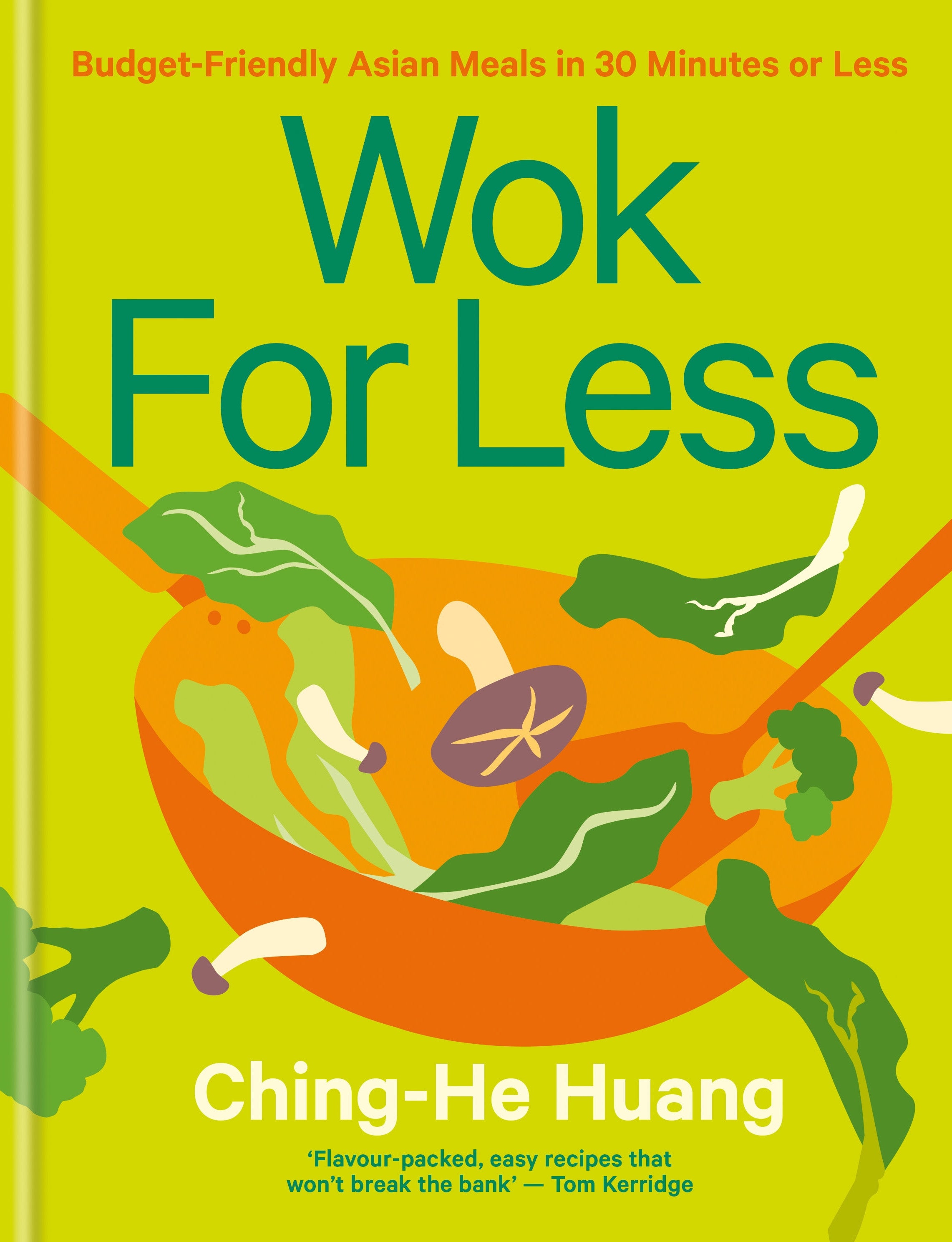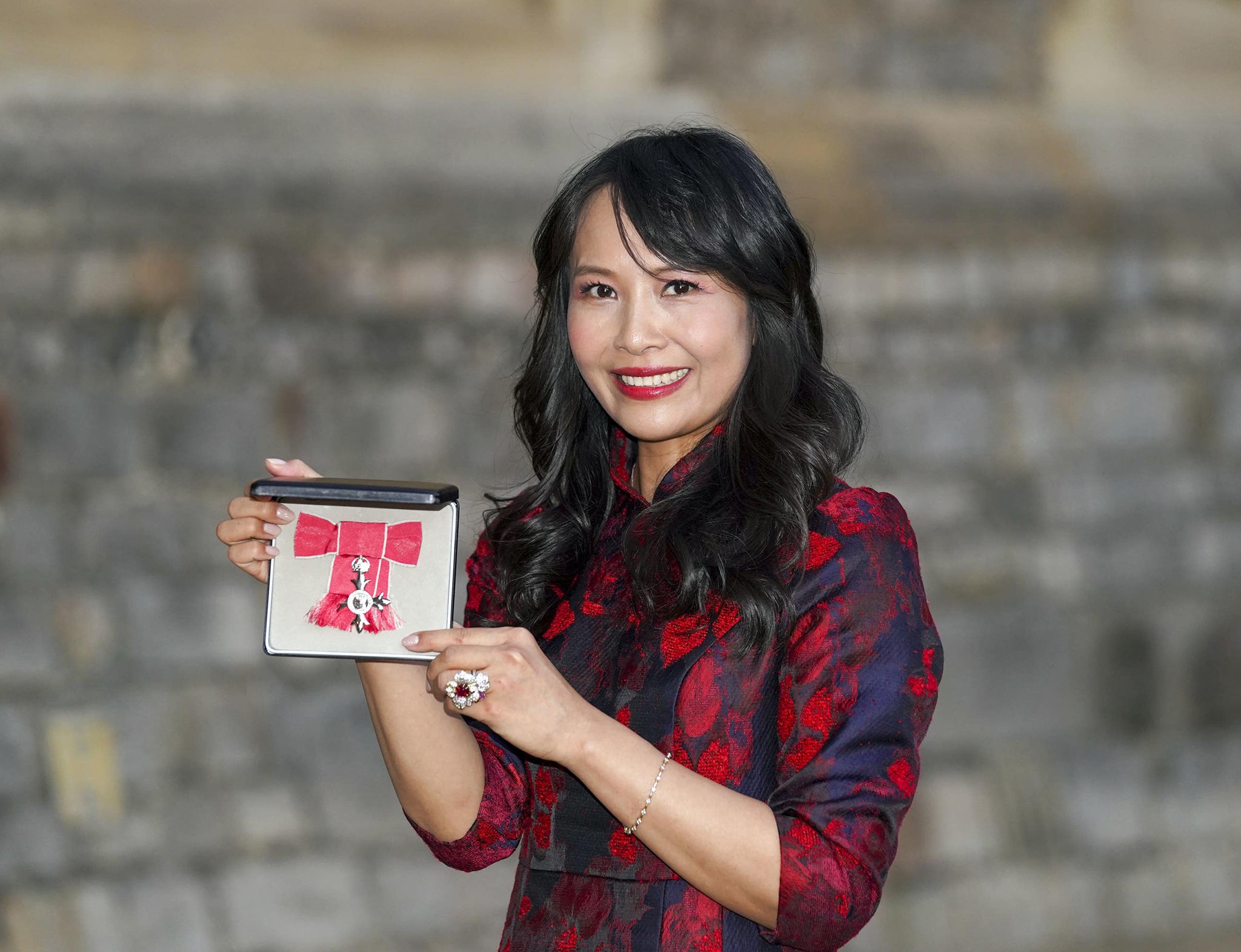Ching-He Huang on cost-of-living cooking and why she hates airfryers: ‘You can still eat well on a budget’
Growing up on a shoestring between Taiwan and South Africa taught Ching-He Huang how to make the most of every scrap and enjoy the little things. As her eleventh cookbook comes out in the middle of the cost-of-living crisis, it’s a lesson that’s more important than ever, she tells Lauren Taylor

Your support helps us to tell the story
From reproductive rights to climate change to Big Tech, The Independent is on the ground when the story is developing. Whether it's investigating the financials of Elon Musk's pro-Trump PAC or producing our latest documentary, 'The A Word', which shines a light on the American women fighting for reproductive rights, we know how important it is to parse out the facts from the messaging.
At such a critical moment in US history, we need reporters on the ground. Your donation allows us to keep sending journalists to speak to both sides of the story.
The Independent is trusted by Americans across the entire political spectrum. And unlike many other quality news outlets, we choose not to lock Americans out of our reporting and analysis with paywalls. We believe quality journalism should be available to everyone, paid for by those who can afford it.
Your support makes all the difference.The cost-of-living crisis has forced most people to cut down their food budget. Taiwanese-born British chef Ching-He Huang first learned to cook on a shoestring when she was just 11.
“My mum had to go away, back to Taiwan [from north London] to work, to try and make ends meet. My dad looked after us,” the 45-year-old says, who wouldn’t see her mother for six months to two years at a time. “It was tough. When I graduated at 21, she finally came back.”
Her parents had paid everything they had for the expensive visa to move from South Africa to the UK in 1989, and then a recession hit and they “pretty much lost everything”.
Without her mum, cooking and meal planning fell on a young Huang. “My dad’s a very bad cook. To this day he can’t cook fried rice even. So my mum would teach me how to cook, then I would cook for him. Every time she’d come back, I would learn a bit more.”
Huang, who has just released her 11th cookbook, Wok For Less, all about budget Asian cooking in 30 minutes or less, says the recipes she includes “are the sorts of dishes that I made for my dad growing up”. Think chop suey, stir-fries, fried rice and clever hacks to turn leftovers into other tasty meals.
Born in Taipei, Huang’s first big influence when it came to food was her Chinese grandmother, whose farm she lived on until the age of five. “I was given to my grandparents to live in the countryside with. It’s very, very common. The norm was to be shipped off to the grandparents [while] parents are busy working in the city.”

She’d watch her grandmother cook for 25 family members, “Breakfast, lunch and dinner – it was quite something”, says Huang. “My grandmother had two wood fire stoves with large woks and she would make the most amazing dishes and feed all of us. That art and that mastery, the clever use of every day; what are we going to eat? How are we going to pair this with that? I grew up seeing all of that. It influenced me a lot.
“Even though there wasn’t very much on the farm, everything was seasonal, everything was fresh, [we] used fermented ingredients like soy sauce or miso to give flavour.”
Her family emigrated to South Africa at a time when Taiwan was offering grants for residents to leave and travel for career opportunities, and Huang moved from one farm to another outside Johannesburg. “We’d never had an avocado before, we’d never had things like biltong or yoghurt. My mum missed home and there was one Chinese supermarket in Jo’burg, a very small store, that had soy sauce, tinned abalone… I remember very vividly her getting very excited. We’d go once a week to stock up on supplies.
“I think my mum was very good at feeding us on a budget, it was creativity, a mix of East and West. It was a lot of using whatever she could find, a taste of home, like just a splash of soy sauce on Friday.”
But living in South Africa between the ages of five and 11, at a time of civil unrest during Apartheid wasn’t easy. “My brother and I were the only Chinese children in the whole school,” she shares. “I did feel like being in a zoo. We stood out, I’m not going to lie.”

She made friends by sharing her food. “I ‘broke bread’ literally with other children by giving them my packed lunches. And they gave me Nutella and these mince meat sandwiches you have in South Africa. They were curious what I was eating and I was curious what they were eating,” she says.
It’s all had a lasting impact on how she cooks now. “Actually we could eat very well if you look at the ways we used to eat, and still eat, in Asia. Families would share meals, two fish filets would feed [a family], a spoonful each and some rice – that will give you a little protein but it’s sustainable.”
All of the recipes in the book use what she calls a “pared-down” pantry. “I used £48 to buy all my store cupboard. I tested the whole recipe book and I still have so much left, it lasted months. With a little investment upfront – and I’m not saying everyone’s got to go out and buy all of them in one go – just £5 of them is just fine, and you can cook and eat well and wholesomely on a budget.”
While air fryers might be all the rage right now, she’s a traditionalist.
I think my mum was very good at feeding us on a budget, it was creativity, a mix of East and West. It was a lot of using whatever she could find, a taste of home, like just a splash of soy sauce on Friday
“As long as I’ve got a cleaver, a wok and a chopping board, that’s all I need.” Plus, a wok is cost-efficient. “Traditionally, it’s very little gas, very little oil and then the dish is done in less than five minutes.”
She’s not against using an oven entirely, which uses much more energy, of course. Her new book includes slow-cooked chilli beef brisket and soy butter roast chicken, but “be clever about it, because in an oven you’ve got three shelves right? All the little nooks and crannies – fill them up.
“Do some, like, duck legs on shelf one, a whole chicken [on shelf two]…” she suggests, and then use those ingredients in various meals for the next few days. Huang has recipes for chilli beef brisket noodles and chilli beef brisket baos, for example.
And all those odds and ends in the fridge? Chuck them in a wok. “It’s an Americanised-Chinese way, but in essence [it’s] using leftover ingredients, throwing bits and bobs that you have to make everything ‘chop suey’ – a handful of bean sprouts, chestnuts from another dish, red or white onions, chicken or ham. A little goes a long way.” Her book includes throw-it-together recipes like Cantonese-style ham and egg fried rice, and five-spice bacon lardons and red cabbage with rice.
Even in hard times, like a cost-of living crisis, “I think we just have to remind ourselves that actually you can still eat well and cook. I think the act of cooking is so important, [so we] don’t forget how to feed ourselves.”
‘Wok For Less’ by Ching-He Huang (Kyle Books, £25).

Join our commenting forum
Join thought-provoking conversations, follow other Independent readers and see their replies
Comments